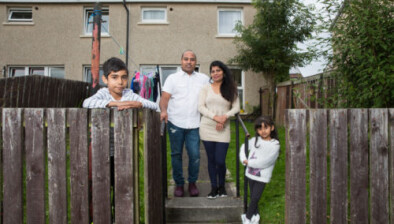Asylum seekers in hotels should have been given money for phone calls, High Court rules

A decision by the Home Office not to give money to thousands of asylum seekers to make calls to friends and family during the pandemic has been declared unlawful by the High Court.
The ruling means the UK Government could be forced to roll back weekly payments for some 10,000 asylum seekers.
After an earlier hearing, the Home Office agreed to make payments and late payments of £8 a week for other essential living costs previously denied to asylum seekers living in hotels, which authorities say cost £4 million, The Guardian reports. But phone costs were not included.
The case was brought by an asylum seeker from Honduras who was housed in a hotel from May 2020 to February 2021.
Judge Farbey ruled that being able to communicate by telephone was essential for “interpersonal and social relationships, as well as for cultural and religious life”.
Since the start of the pandemic, the Home Office has increased its use of hotels, hostels and barracks tenfold to house asylum seekers, with many staying there for months. Previously, newcomers stayed in that accommodation for only a few weeks and therefore were not given money to finance essentials.
Internal documents released to the High Court the day before the hearing began revealed that in August 2020 senior Home Office officials urged home secretary Priti Patel and then-immigration minister Chris Philp to make payments of £12.11 a week to asylum seekers in hotels for essential vital needs.
However, Patel and Philp rejected the recommendations on the grounds that “the asylum system already seems more generous than its European counterparts and they do not want to further increase the potential pull factors”.
Ahmed Aydeed of Duncan Lewis Solicitors, who represented the asylum seeker in the case, said: “The Home Secretary, during the pandemic, failed to meet the basic living needs of the asylum seekers.
“She chose to ignore the advice of her public officials and again the courts forced her to do the right thing. We are happy that our customers finally have access to the essentials of everyday life and can communicate with their families again.”
Robina Qureshi, director of Positive Action in Housing, said: “We strongly welcome Mrs Justice Farbey’s, ruling in the High court that the Home Office’s decision not to give thousands of asylum seekers money to make calls to friends and family during the pandemic was unlawful. We welcome her ruling that being able to communicate by phone is essential for ‘interpersonal and social relationships as well as cultural and religious life’.
“Our staff and volunteers worked on the ground with many hundreds of asylum seekers throughout the pandemic distributing emergency supplies such as phone top ups, crisis payments, food packs and digital technology. We saw firsthand the oppressive and miserable conditions created by the Home Office and its accommodation contractors for asylum seekers in Glasgow and across the UK at a time when all human beings ought to expect compassion and support.
“Would events at the Park Inn in Glasgow in June 2020 have happened if people had a little money for phone calls or a piece of fruit? Would Adnan Walid Elbi, who was removed from his home and dumped indiscriminately into a guest house in Glasgow with zero social distancing, have still been alive? These are all burning questions that remain but there is no inclination by government towards a public inquiry to ask what happened and why? What we do know is that forcing people already living in a state of near destitution to the brink can only result in further tragedy. We fear that this government has not learnt those lessons.”
A Home Office spokesperson said: “During the height of the pandemic, to ensure asylum seekers were not left destitute, additional full-board accommodation was required at extremely short notice, but we are working to end the use of hotel accommodation.
“Needs related to food and toiletries continue to be met by the accommodation provider under existing contractual arrangements and we provide a weekly cash allowance. We continually review the provision to make sure it meet the needs of those in our care and will look carefully with our providers to ensure provision for communication is available.”







